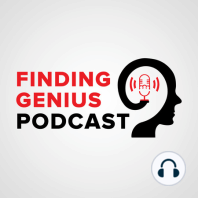25 min listen

Tidal Rhythms Encoded Human and Animal Physiology: Bokai Zhu Discusses Ultradian Rhythms
Tidal Rhythms Encoded Human and Animal Physiology: Bokai Zhu Discusses Ultradian Rhythms
ratings:
Length:
26 minutes
Released:
Jun 25, 2020
Format:
Podcast episode
Description
Most listeners are familiar with circadian rhythms, but Professor Zhu is working on less-studied 12-hour cycles and how they affect our well-being. He talks about his research, explaining How 12-hour rhythms match the tidal shifts and patterns, Why this 12-hour rhythm probably evolved before the circadian rhythms, and How a better understanding of the physiologies of ultradian rhythms might lead to Alzheimer's and other disease treatments. Bokai Zhu is an assistant professor in the Department of Medicine in the Division of Endocrinology and Metabolism and the Aging Institute at the University of Pittsburgh. He's working on biological rhythms, also known as oscillations, and specifically narrowed his study to research ultradian rhythms, which signifies 12-hour cycles, rather than the more commonly-studied circadian rhythms. Thus far he's found evidence that 12-hour rhythms originated to adapt to the 12-hour tidal rhythms, which we see in crustaceans. Furthermore, Zhu believes as we've evolved from the sea, humans and other animals have kept this 12-hour rhythm. In other words, this same tidal pattern followed by our evolutionary ancient ancestors is ingrained in our body clock. He discusses how he is conducting studies in mice to better understand this cycle and how it might regulate our systems. He makes an interesting analogy to morning and evening rush hour, how these 12-hour switches of increased activity present more risk for bodily damage like misfolded proteins. He's also found potential connections to memory issues because the hippocampus is especially engaged in the 12-hour cycle. Listen to learn about these issues and more. For more information, see his web site at the university and search for recent news articles covering his research: www.isb.pitt.edu/people/faculty/bokai-zhu-phd Available on Apple Podcasts: apple.co/2Os0myK
Released:
Jun 25, 2020
Format:
Podcast episode
Titles in the series (100)
Using Artificial Intelligence In Judicial Decision-making | Interview With Dr. Dimitrios Tsarapatsanis.: This week I interviewed Dr. Dimitrios Tsarapatsanis who has helped develop an artificially intelligent system that can predict the outcome of a case with a whopping 79% accuracy. Dr. Dimitrios explains… by Finding Genius Podcast